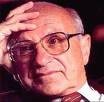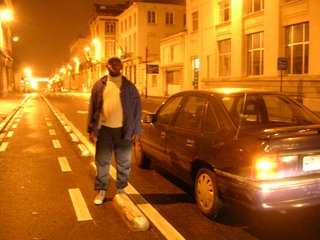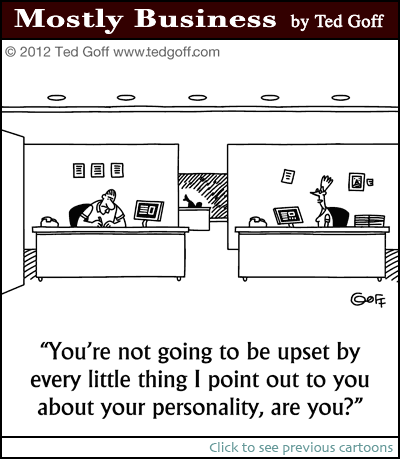Milton Friedman (31/07/1912 – 16/11/2006)
 1. 20th century economics showed 2 major important economical schools: the ‘Keynesian economics’, an economic theory based on the ideas of John Maynard Keynes, and ‘Monetarism’ a theory largely attributed to Milton Friedman.
1. 20th century economics showed 2 major important economical schools: the ‘Keynesian economics’, an economic theory based on the ideas of John Maynard Keynes, and ‘Monetarism’ a theory largely attributed to Milton Friedman.2. Friedman attacked Keynes beliefs in the 1950’s in his book ‘A Theory of the Consumption Function’. But Friedman acknowledged the fact that even he started out as a Keynesian. “We all use the Keynesian language and apparatus; none of us any longer accepts the initial Keynesian conclusions", he says.
3. Keynes says the economy is best served by government and parliament. They have to regulate the economy via taxes and government spending. Friedman and the monetarists on the other hand argue government should not interfere with economy at all. The economy should be left to the people and the companies. Exceptionally central banks can interfere and influence the economy through regulation of the quantity of money. Monetarists speak of ‘laissez-faire economics' (economic theory based on the belief that markets and the private sector could operate well on their own, without state intervention).
4. According to Keynes (1957) individual consumption depends on wages, and therefore it is an unstable parameter. Increase in wages leads to more consumption, dismissals lead to decreased consumption. Friedman does not agree: it is the ‘income-expectation on long term’, the so called ‘permanent income hypothesis’ that influences consumption. It means that consumers will spend not driven by their current income, but by their long term income expectations. Individual consumption is therefore a much more stable parameter.
5. Keynesians argue that the quantity of money should not be considered as a reliable economical instrument because the circulation speed of money is not constant. Friedman however proved that the money velocity as well as money production is constant. This means that the quantity of the money determines price setting and the level of inflation (the supply of money being larger than the demand for money). The inflation is to be regulated by controlling the amount of money poured into the national economy by the National Banks.
6. Nobel Price for Economic Science in 1976 for his work on consumption analysis and monetary theory.
7. Friedman played a remarkable role in the abolition of the draft in the 1970s in the U.S. He stated that his role in eliminating the draft was his proudest accomplishment.
8. Friedman was a Professor of Economics at the University of Chicago from 1946 to 1976. He created an intellectual community that produced a number of Nobel Prize winners, known as the 'Chicago School of Economics'.
9. Friedman co-wrote and co-produced ‘Free to Choose’ with his wife Rose D. Friedman. They also created the 'Milton and Rose D. Friedman Foundation', an organisation determined to introduce and promote schoolvouchers in the American schoolsystem as well as the freedom of choice in education. Their memoirs are published as ‘Milton and Rose D. Friedman, Two Lucky People’ (1998). Milton Friedman claimed that Rose was probably the only person in the world to have ever won an argument from him.
10. Milton Friedman was cremated. He wanted his ashes be scattered over the San Francisco bay.


























